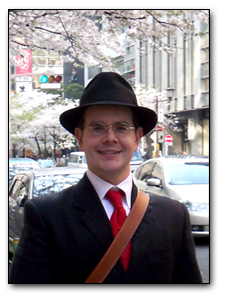Aaron Bramson, Ph.D.

Aaron received his Ph.D. from the University of Michigan in a joint program with the departments of Political Science and Philosophy. His primary research interest is in complexity and methodology for modeling complex systems. Toward that end he also earned the graduate certificate in complexity from the Center for the Study of Complex Systems, also at UM. Aaron has completed a post-doctoral research fellowship in the Rotman School of Management at the University of Toronto teaching MBA courses and developing Bayesian network and agent-based modeling techniques for business applications. Before attending UM, Aaron earned an M.S. in Mathematics from Northeastern University in Boston, as well as a B.S. in economics and a B.A. in philosophy from the University of Florida.
While a graduate student Aaron has engaged in a variety of consulting projects to develop simulation and analysis tools for a wide variety of academic and professional organization. He was a software engineer at Lockheed Martin Corporation for over two years. Most recently, Aaron is president, owner, and CEO of both Jika Tabi Inc. (a Japanese fashion design and distribution business) and Complexity Research Corporation.
My primary field of inquiry is the highly interdisciplinary field of complex adaptive systems, especially agent-based modeling, network theory, data analysis and visualization, and a huge range of methodological and conceptual issues involved in exploring complexity theory. The particular projects I engage in are typically heavy in mathematics, statistics, computer science, and philosophy. My dissertation research focused on the evolution of prosociality (e.g. cooperation, coordination, contribution) through a mechanism I call "preferential detachment" and its implications on moral experience. The project included elements from game theory and institutional design, implemented through a dynamic networked agent-based model analyzed with nonparametric statistics, a Markov model of the same phenomenon, and a philosophical chapter that builds on research from animal and human psychology, biological evolution, and neurology. You can find out more about my research from ComplexityBlog.

